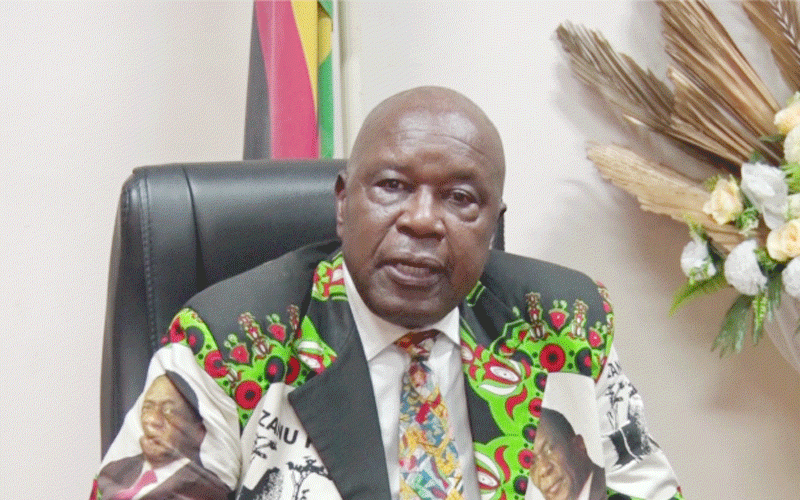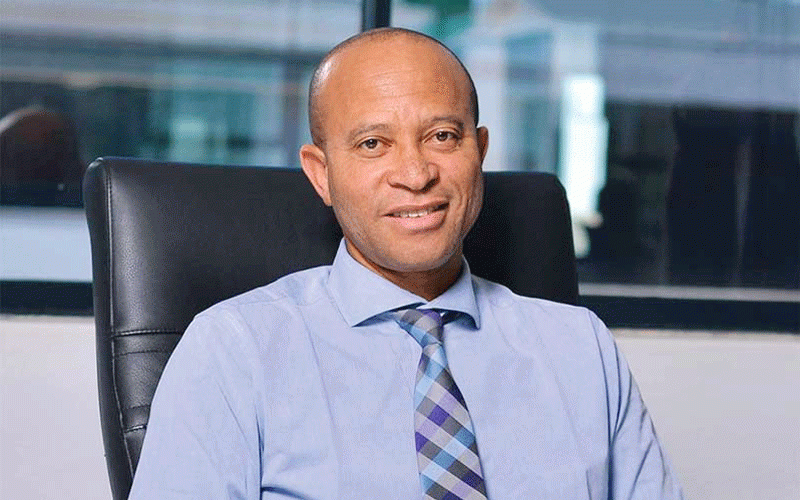Zimbabwe needs more female role models to encourage young girls to take up stem subjects to address the problem of the low number of women taking up science-inclined jobs, says a leading information technology professional and gender advocate.
Girls In Stem Trust founder and executive director Victoria Nxumalo (VN) told Alpha Media Holdings chairman Trevor Ncube (TN) on the platform In Conversation with Trevor that girls cannot be what they cannot see.
Nxumalo is also founder and training director of Digital Learning Centre and technical innovation director for The Bulawayo Tech Hub.
Below are excerpts from the interview.
TN: Victoria Vicky Nxumalo, welcome to In Conversation With Trevor.
VN: Thank you so much for having me Trevor, it is such an honour to be here.
TN: It is an honour to us because you have had to fly from Bulawayo to come and spend time with us, so we do not take that for granted Vicky, thank you.
VN: Siyabonga Trevor, thank you.
TN: Fantastic. So, Vicky, you are the founder and executive director of Girls In Stem Trust.
You are founder and training director of Digital Learning Centre.
You are the technical innovation director for The Bulawayo Tech Hub.
That is huge, I mean there are lots of responsibilities there, how do you divide your time between these responsibilities that you have?
VN: Work-life balance Trevor, really important, and the journey of how all this happened really was not intentional, so there is always a story behind the story.
TN: Let us have the story.
VN: Girls in Stem Trust has probably existed for about 15 years, for as long as I have been an information technology professional, but on paper it has existed for five years.
So, I found myself gravitating towards always wanting to put myself in spaces where technology is being discussed, and as time goes you begin to realise there are very few that look like you, and I mean women right?
So, I began to wonder, to say but we are churning out all these graduates, where do they go to?
Where do the female graduates in the stem subjects go to? Is it that they get swallowed up in the back-office somewhere or other...
TN: For the stem subjects Vicky, for those who do not know out there, what are they? What are the stem subjects?
VN: They are science, technology, engineering and Mathematics.
So, you could pretty much be anything, from a science teacher, to a robotician, to an astronaut really, and all of that falls within stem, right.
My focal area is technology, and I believe that technology underpins all the facets of stem, so there is a technology for science, a technology for engineering, a technology for maths.
So pretty much like I said I was gravitating towards always being in those spaces where technology is being discussed but not very many women are there.
Technology affects everybody, you know the digitisation of the spaces that we are in currently, and also when you look at the scheme of things 4IR, now conversations about 5IR and there are not very many women taking the lead and also having their voices heard.
TN: Remember, be slow with us, say hey, because four or five out of whatever, what is that?
VN: Thank you very much Trevor!
TN: Please be gentle with us. Right.
VN: So 4IR, we speaking about the fourth industrial revolution Trevor.
So basically when we speak about the fourth industrial revolution common sense dictates that there must have been a first right.
So, typically a revolution lasts between 50 to 100 years, and that is basically the gold standard for what life is globally, right?
According to society, so we are all conformed to whatever is the revolution of the time.
Where we are now we are in what is called the cyber physical revolution.
So basically things are happening in cyberspace, and I am sure you see this.
Mobile technologies are moving from 4G to 5G, artificial intelligence now doing things for you, you know internet of things.
So this is what I speak about to say all these things are affecting daily lives and where are the women in all of this?
Are there innovating things that would sort of cater for them in the near future.
This is why I was saying I was gravitating towards all these things but not knowing that I am putting myself in spaces where I am encouraging other women to come in and join the fold.
Also encouraging them to take up studies that involve technology, so this is why I say Girls In Stem Trust existed way before its time on paper, until eventually I decided to then say why do we not get together as a group of technology veterans and then say let us have a formalised structure of all these activities we have been doing over the years and sort of move forward with that.
So this is now the birth of Girls In Stem Trust.
TN: Sorry to come in. What do you find to be the hurdles?
You are saying you are in a room, there are not many people that look like you?
Meaning not many women in the room? Why is that so?
Why are young girls not taking up stem subjects? Can we get there and what are we doing to unlock that space?
VN: We cannot be what we cannot see.
TN: Oh right.
VN: It is as simple as that.
TN: That is powerful.
VN: Yeah. We cannot be what we cannot see.
So, when you have other women role models doing the same thing, having gone through that journey of saying I did an "A" Level subject combination of this and this, and it had computer science in it, and then I progressed to do for example informatics, and then from there this is what I did.
I moved into the field of data analytics, I became you know a data scientist, and so on.
If you do not see it how can you even begin to conceptualise or fathom it, right?
So that already, we need more female role-models, more female mentors sharing their stories, hand-holding, literal hand-holding these girls to say "hey your subject combinations are these, progress with them in this manner and follow this path" and you know, that sort of thing.
Then, also mindset. Mindset is a big thing Trevor.
If I keep telling you that it cannot be done, you will believe that it cannot be done, and a lot of the women...
TN: Girls cannot do this...
VN: Yes. Women cannot do this, and why should you even be here you know, and already the technology field and the stem field are male dominated, less than 30% world over of scientists are women.
What of the other 70%? So yeah it is a lot that is involved there, and so what we're now doing...
TN: Is there anything else? So, we will talk about.
You cannot be what you cannot see?
VN: Yes.
TN: There is the mind-set, anything else that is stopping the girl child, the young woman stepping into stem space?
VN: Yeah there is still another aspect to it, and that is to get to the school in the first place.
You will find that again the society and the culture will then say "Oh well you know when things get tight, and things are tight, when they get tight it is, yeah we are going to have to cut your dreams short".
So all those things and somebody would say no but I used to love to put wires together, and you can already see that this girl is headed to be on the path of being an engineer, but you know as time goes then you quickly realise to say well that dream was cut short.
So those are some of the barriers there.
TN: And you talk about projects that a number of you were doing not in one space?
What kind of projects are these that then you then say let us get together and put together what we have been doing? What is that?
VN: We had a lot of digital literacy skills because that is the fundamental.
You start from there right, so you, from your basic, what is a computer right?
So introduce them to the mouse, the actual hardware.
What does the software do? How do the two relate, the hardware and the software okay?
And the fun stuff that they can do with computers right, so you are teaching that.
Then you take it a step further to say, "Hey did you know that this computer can do a lot more than just type or play games on it?"
You literally can make your own game.
Now you are teaching them coding and programming, right, to come up with some of their own solutions in their community using technology.
So now we are involved in things like technovation, mentoring girls to come up with apps and compete with other girls across the globe.
So that gave them exposure.
We are also talking about having women in ICT forums, we are getting together as women and we are talking about the journey.
We are also talking about what needs to be done.
So now these concerted efforts, now they are all happening in silos, but now when you come together and you sit down you say let us have a structure.
For me I believe collaboration is key. So what I am thinking and what the next person is thinking, and we happen to be in the same space can become so much bigger when we put it together.
TN: Absolutely.
So we get into the same space, we are working on similar projects.
Is there stuff that we have built?
Is there stuff that the women have built that has been taken out and made commercial?
Become impactful? Is there anything that you could give as examples?
VN: I am actually thinking specifically of the women that have gone on to start their own start-ups.
So they would not have been able I suppose, to do that without that mentorship, and also with that, like I said, that hand-holding.
TN: Yeah.
VN: To then say you can do this, do not let the idea die in your mind.
TN: Yeah.
VN: Take the necessary steps to see it through to fruition.
TN: And then founder and training director Digital Learning?
You have done this for a long time, and you are saying your passion is to create 21st digital natives?
How is that going and could you describe for us what it looks like?
VN: Looking good, and I am so excited because now people are becoming more and more technologically aware, and also to a certain degree, the generation that is now youth, is they are basically digital natives.
So they are born technologically adept.
Their mind-set is towards, you know, give me a cell phone and I'll show you how to really use it!
My daughter is primary example of that.
TN: How old is she?
VN: She is 11 years old.
TN: And she teaches you stuff?
VN: She is like but did you not know? And I am like wow okay.
TN: Yeah.
VN: So that is really important because now, fair enough they are technologically adept, but they need the professional skills that the job market is looking for, that the global work talent pipeline is looking for.
So that is not just being able to tinker around with stuff, there is a whole lot more to it.
It is understanding the business element that goes with them creating and innovating, right?
You also need to understand things like your EQ, right? They say EQ is now the new IQ, so you need to understand how things like emotional intelligence come into the fray.
How your critical thinking skills, your ability to do, to have good judgment, lead a team.
All those things are what industry is looking for, and that is the stuff that you cannot learn out of a textbook, it is actually a lived experience.
So, coming into the Digital Learning Centre, we then create those opportunities for them to get the technical skills that they need, but on the same token also to get the stuff that they need to go out with into the market.
“In Conversation With Trevor” is a weekly show broadcast on YouTube.com//InConversationWithTrevor. The conversations are broadcast to you by Heart and Soul Broadcasting Services





